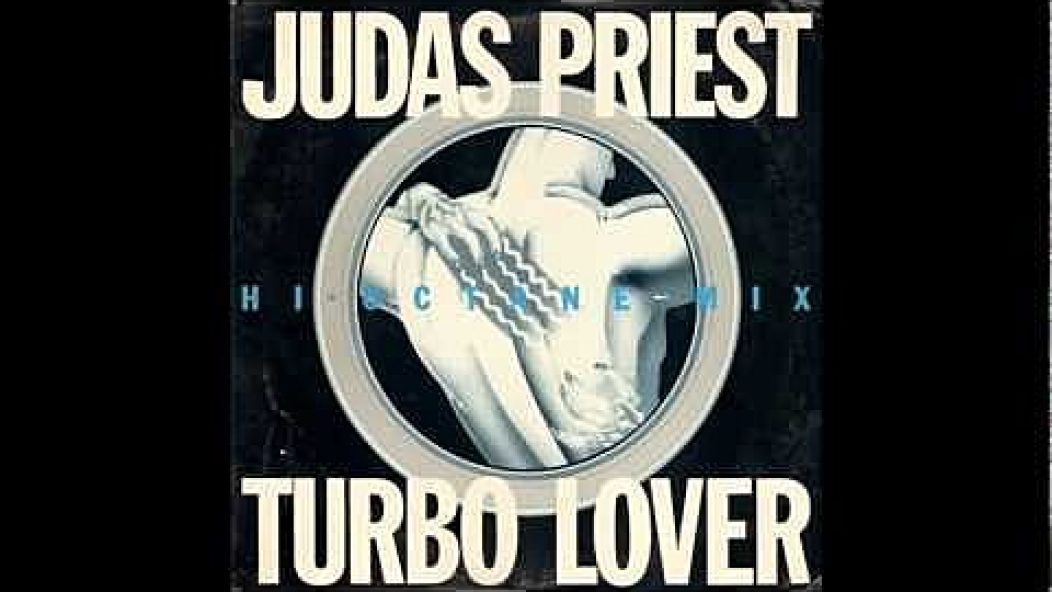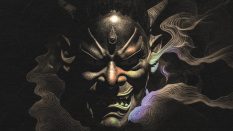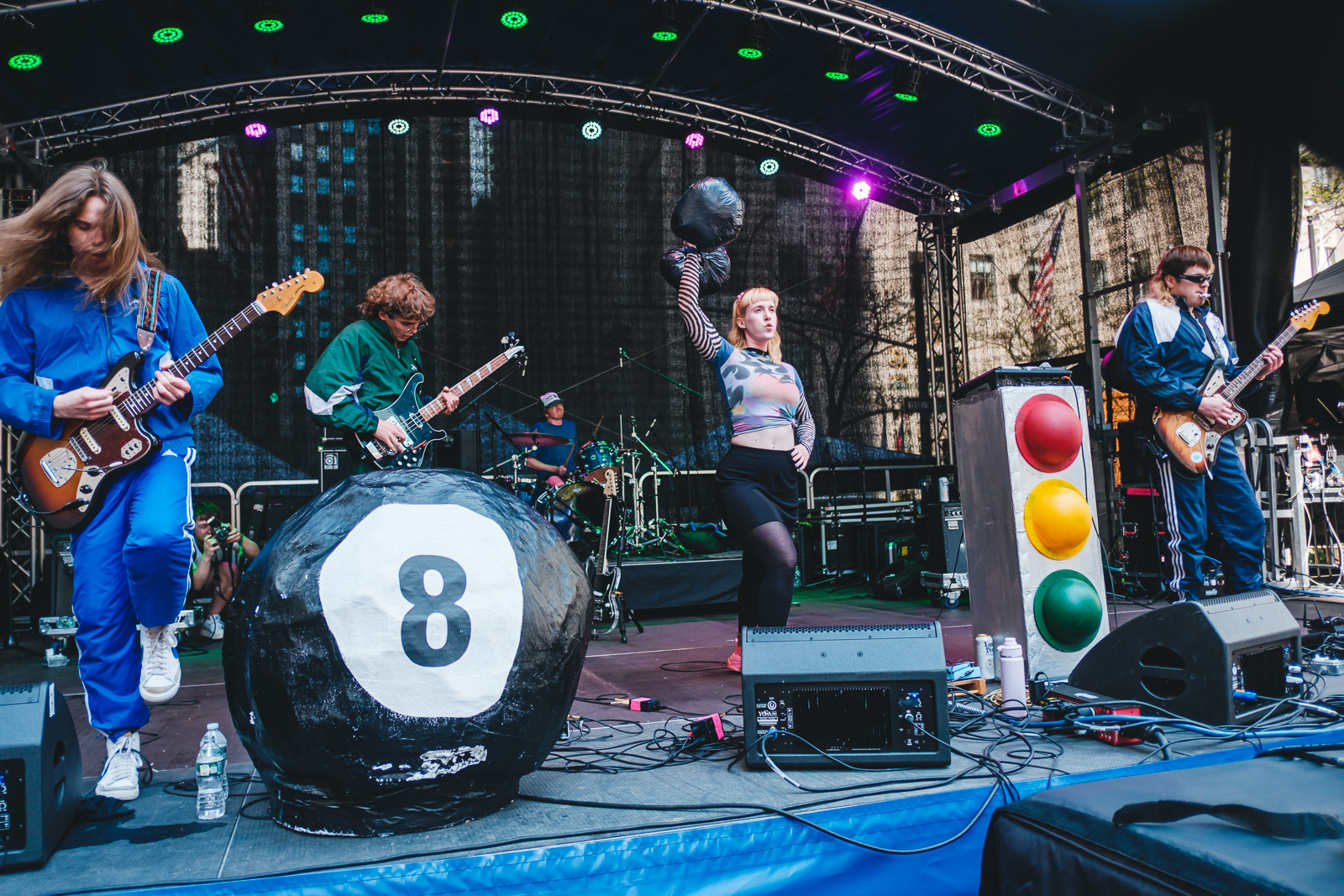
Dancing Isn't Metal... So They Say
…
To say that metal has had an adversarial relationship with dance music for most of the genre’s history would be fair. The lines were drawn as early as the 1970s when the two words “disco sucks” would drive a wedge between rock music and dance music. The inevitable conclusion was that you couldn’t dance to rock, and aside from strippers shimmying to AC/DC, that was pretty much the rule for decades.
From then through the 1980s, metal bands couldn’t even have a keyboardist on stage with them, though a ton hid the poor guys offstage. Black Sabbath has had a keyboardist for four decades, the most notable of the invisible players being Yes legend Rick Wakeman’s son Adam. Ozzy had them after he went solo. Michael Kenney plays with Iron Maiden sans spotlights to this day. Want to win a bar bet? Gary Corbett co-wrote Cyndi Lauper’s “She Bop” and also toured with Kiss for years with nary an introduction from Paul or Gene.
It didn’t have to be that way. In the 1980s you became a pop star just by adding keys and electronic drums. ZZ Top had a certain shit-kicking appeal, but it wasn’t until 1983’s Eliminator that they sold millions of albums. Mutt Lange took Def Leppard from scruffy NWOBHM hopefuls to the biggest band in the world. Even punk rock went platinum years before Nirvana when Billy Idol went from Generation X to dancing with himself.
Even back in the 1980s, few could make that transition without alienating existing fans. Judas Priest got a lot of grief adding synthesizers to Turbo. For shits and giggles, check out the “Turbo Lover (Hi-Octane Mix)” Columbia optimistically released as a single in 1986: all reverb-drenched Rob Halford vocals and triggered drums triggering the era’s metal fans who forgot that Sad Wings of Destiny had pianos all over it and was still one of the best metal albums ever made.
…
https://www.youtube.com/watch?v=RlRxPWbt7QY
…
Thankfully, things have gotten a lot better since then. Industrial music was probably the biggest instigator. Metal fans put aside territorial pissings, embracing Trent Reznor and Al Jourgensen when they started incorporating loud guitar and other metallic tropes into industrial music that was still mostly danceable. Then in the 1990s, gothic metal bands like Lacuna Coil and Theater of Tragedy emerged from an extreme metal underground and found a new home on the dancefloor.
Relatedly, though only occasionally dance-friendly, many black metal acts have used electronics to conjure up the genre’s trademark atmosphere. Soundtrack synth merchants Zombi record for Relapse and influenced labelmates Pinkish Black in making extreme music sans guitars. There’s a mountain of harsh electronic noise that metal fans enjoy, even if they don’t dance to it. GosT went from playing in metal bands to performing sinister synthwave, as did and James Kent as Perturbator (we will acknowledge that project received some unfortunate press recently and leave it at that).
Unlike other examples, there’s no controversy that darkwave is meant to be danced to. In this respect, Håvard Ellefsen was more than a little ahead of this curve. Not content with helping launch Norwegian black metal as an integral part of Emperor’s earliest lineup, he left the band and black metal as a whole to start a solo project under his stage name Mortiis in 1993. He also started a label whose name, Dark Dungeon Music, accurately described the project’s proto-darkwave ambient soundscapes. He liked dressing up like a troll too.
The project went through several permutations since then. The third era starting with 2004’s The Grudge saw Mortiis moving in a far more danceable direction, embracing electronic industrial beats rather than ambient doom, for accessibility heretofore untapped by the musician. Although that album and Some Kind of Heroin came out on Earache Records, the last release from this period, Perfectly Defect, came out only as a digital download or a CD for the tour and mailorder, limited to only 500 copies.
It’s a shame that this was the one album during that period that fell away because it’s without a doubt the most anthemic of the Mortiis releases, and the only one that really grooves. Of course, that didn’t mean it was well-received by metalheads (the one review at Encyclopaedia Metallum says it’s “a low point in his/their career thus far” and grades it 20% and a contemporaneous review at Sputnik Music grades it a 1.5 out of 5 and calls it “an album which mainly elicits boredom.”) Metalheads still might give it the side-eye, but that would be their loss.
“Closer to the End” bounces with an almost hip-hop feel before the grinding chorus brings it to somewhat more familiar territory. “The Sphere” rekindles the more minimalistic past of Mortiis but with advanced percussion that still doesn’t sound dated even now. Actually, the drum samples are probably the best thing about Perfectly Defect, as they ensure the disc doesn’t fall into industrial metal clichés.
At times, especially during “Sensation of Guilt” with its subterranean lounge-rock vibe and the instrumental “Impossible to Believe,” there’s a minimalism that hints at Mortiis’ past works but overall. Perfectly Defect makes for the perfect precursor to The Great Deceiver which would come out after a six year hiatus — the best of both worlds.
…
…
Nearly 25 years after Mortiis made the move from extreme metal to dance music, Wesley Eisold made a similar transition. He started out with Boston hardcore crew American Nightmare and went on to form math rockers Some Girls before starting up Heartworm Press to publish books as well as some releases for his solo project Cold Cave.
Although Cold Cave has released two full-length albums of retroactive synthpop since 2009, most notably 2011’s Cherish the Light Years on indie label Matador, Eisold seems to prefer the immediacy of EPs since he had a slew of them in that time. Most recently he put out You & Me & Infinity on Heartworm Press.
Although only four songs in length, the EP feels like a departure. It may be that it has less of a solo feel and more of a collaborative effort down to the cover which features his girlfriend Amy Lee. She has always been involved, but the Velvet Underground-like photo of both of them clad in leather and sunglasses – as well her involvement in a full live band and a more rigorous touring schedule – makes Cold Cave feel like a band.
On “Nothing Is True But You” and “Glory” the two share the vocal spotlight with a sound that paradoxically is updated by looking back on synthpop masters of the past. Here, it’s Nitzer Ebb’s brand of hardcore; on the title track you hear the sexy subversive style and sweeping synth-play of Depeche Mode. The lyrics seem uplifting and affirming of their relationship, adding genuine romance to New Romantics not unlike a less dark Drab Majesty.
…
…
In addition to Cold Cave, Eisold reformed American Nightmare for an eponymous album that will likely be one of the best hardcore albums of the year when all is said and done. It makes a person wonder is there anything he cannot do well?
End Christian’s sophomore release Bach Part One has only a few genuinely toe-tapping salvos. The minimal, downbeating “Anywhere W/You,” the implied gabberhouse on absinthe of “Karaoke_So,” and the doom-eyed soul of two tracks featuring Christian Alexander “crushing Alexander Hamilton’s face” with intentionally grotesque auto-tune could elicit body movement, perhaps. Maybe it would be better underwater or on another planet, but dancing is not prohibited in the ocean or Mars as far as I know.
Still, this release is relevant because it has a large group of metallic musicians stepping out of their comfort zones: “Hamilton Two” features Stinking Lizaveta’s Yanni Papadopoulos adding a drizzle of reverberating guitar that doesn’t much sound like guitar (this would become a recurring theme in the rare cases a six-string is employed); “Great Escapes” is a whispered, ambient dreamscape with guitar and production by Godflesh/Jesu Svengali Justin Broadrick; Mike Hill from Tombs plays guitar, bass, and provides mechanized vocals on “Workmanlike,” which envisions alien transmissions as interpreted by David Bowie, plus he sings on “Venison Thaw”; and, Sheena Powell of Philadelphia’s Sheena & Thee Nosebleeds sounds like a soul swami on “Blister Heart.” Kevin Hufnagel is listed as a member on the CD jacket but is not credited for anything specific.
Even the core of the ensemble does not necessarily play to their perceived strengths. One of the best grindcore drummers around, Richard Hoak (Brutal Truth, Total Fucking Destruction) is a full-on member of End Christian, yet he doesn’t actually play drums. He added lyrics, sound manipulation and possibly barbiturates. Rounding out the group are Alap Momin (aka Oktopus of New Jersey rap-gazers Dälek) Gillian Dreadful (Fad Nauseam), and Vincent Rosa (Starkweather). It is all the vision of Hex Inverter’s Christian McKenna who is evidently a conductor of sorts, compacting all of the freeform noisemakers into one very unique release.
Mortiis, Cold Cave, and End Christian are all radically divergent, mostly non-metallic projects created with instruments not usually associated with metal and aesthetics that are often perceived as the antithesis of metal. Despite this, metal fans will likely find a lot to like. Or dance to, if they prefer.
…











